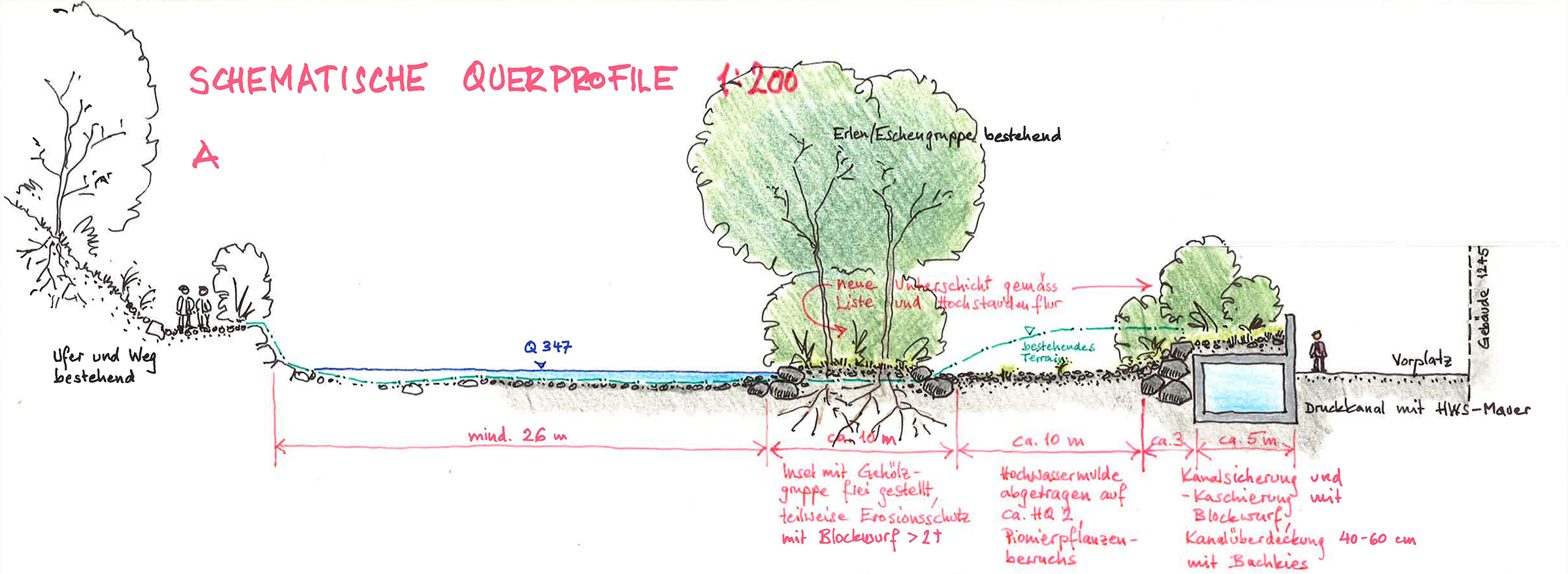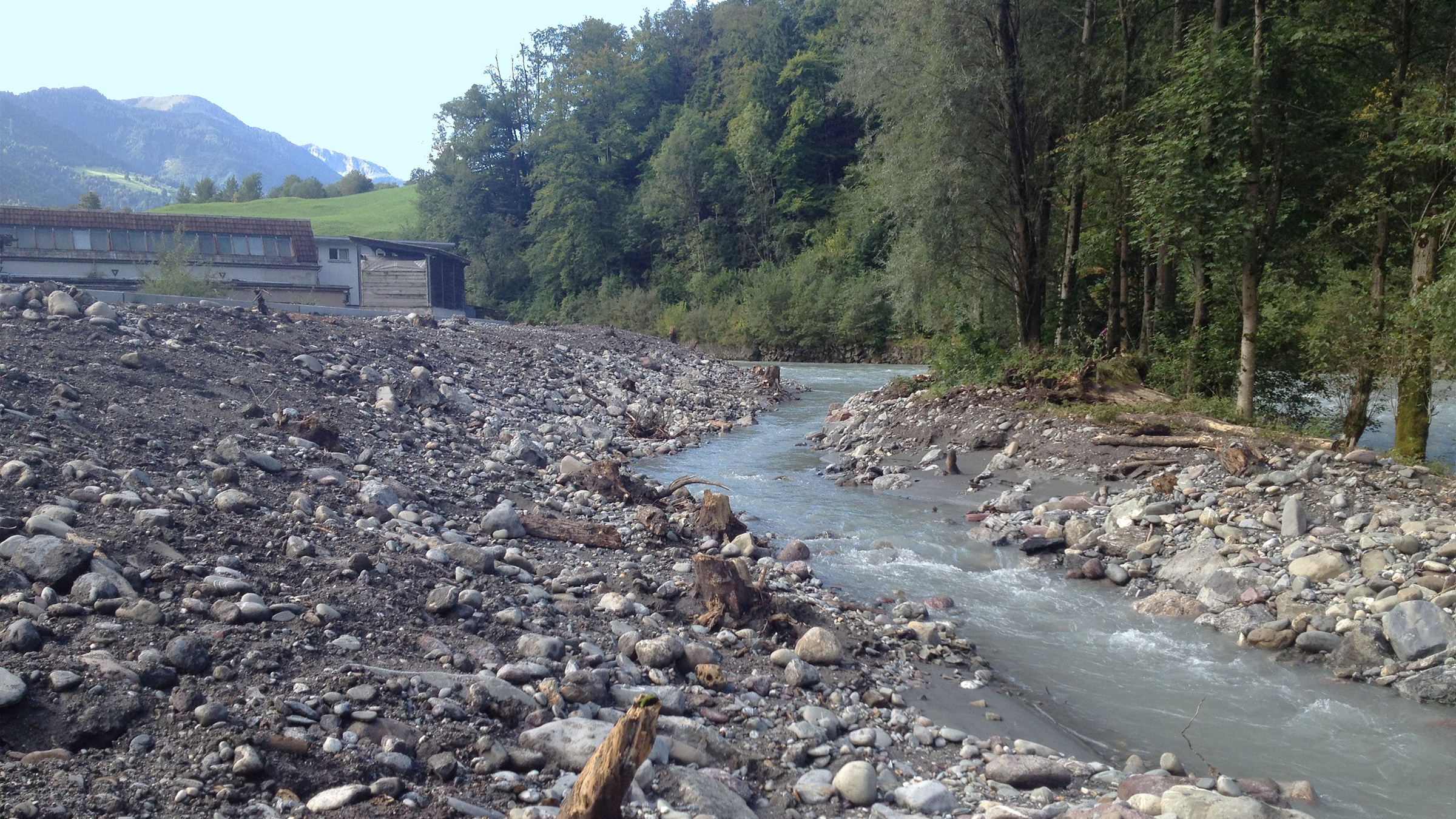EBP was commissioned to introduce an ecological plan to secure the approval of the Mühlefuhr flood protection project in the Swiss town of Ennenda in the municipality of Glarus. The project was then approved thanks to the measures proposed by EBP to enhance the ecological value of the riparian zones along the Linth River.
Owing to its exposed location along the Linth River, the Mühlefuhr site in Ennenda had endured frequent flooding for many years. The cantonal authorities had refused to issue a building permit for initial flood protection measures in the context of a project to renovate a nearby power-plant because the measures failed to provide an ecologically acceptable development of the riverbank. The municipality of Glarus therefore commissioned EBP to revise the project with an eye to its ecological impact.
EBP began by developing measures to enhance the ecological impact of the flood-protection measures. The focus of these measures was on protecting the ecological integrity of the riverbank, securing species diversity and combatting unwanted neophytes.

EBP then supported the developers and the local planning firm when it came to implementing the ecological riverbank improvements.

In light of the fact that it would not have been possible to combat the invasive knotweed along the left bank of the Linth by removing soil, EBP initiated an experimental project using brine injections. The three-year project was designed to test feasibility of this manner of combatting neophytes in riparian zones.